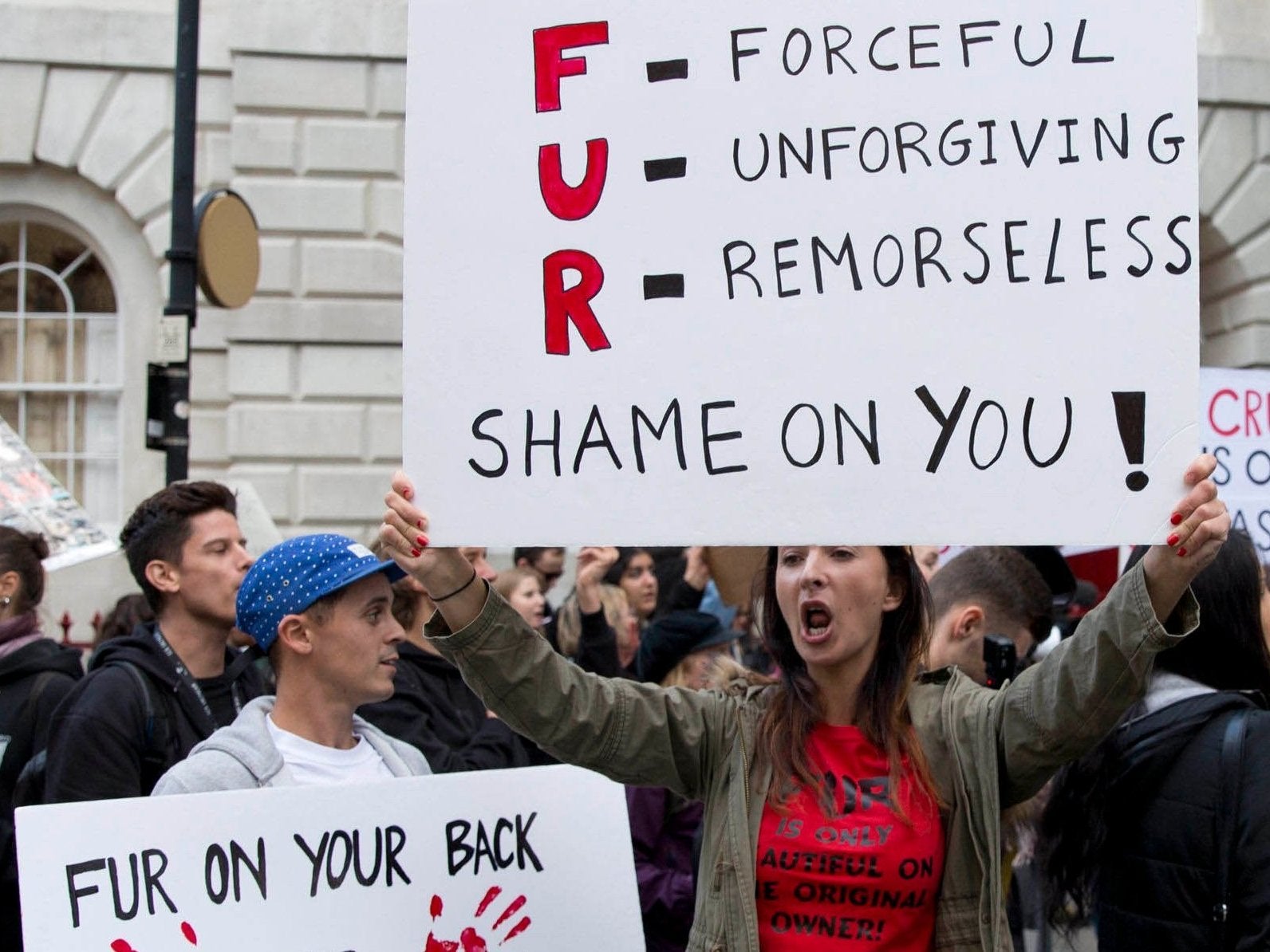Brexit will allow further restrictions on the sale of real fur in UK, say MPs
Committee calls for a consultation on banning real fur to combat high street mis-labelling

Your support helps us to tell the story
From reproductive rights to climate change to Big Tech, The Independent is on the ground when the story is developing. Whether it's investigating the financials of Elon Musk's pro-Trump PAC or producing our latest documentary, 'The A Word', which shines a light on the American women fighting for reproductive rights, we know how important it is to parse out the facts from the messaging.
At such a critical moment in US history, we need reporters on the ground. Your donation allows us to keep sending journalists to speak to both sides of the story.
The Independent is trusted by Americans across the entire political spectrum. And unlike many other quality news outlets, we choose not to lock Americans out of our reporting and analysis with paywalls. We believe quality journalism should be available to everyone, paid for by those who can afford it.
Your support makes all the difference.Brexit will allow the UK to tighten controls on the sale of cheap real fur wrongly labelled as fake in high street shops, MPs have said.
The Environment, Food and Rural Affairs (Efra) Committee claim European Union (EU) regulations are not good enough to allow customers to understand the origin of their clothing.
It is calling for a consultation to ban the sale of real fur after finding that retailers and Trading Standards are "complacent" about it being mislabelled.
Their inquiry follows media reports of real fur being sold as fake by major high-street and online retailers including TK Maxx, BooHoo, Amazon, Groupon, Etsy, Tesco, FatFace, Boots and Kurt Geiger.
While many of the firms had no-fur policies, their "faux" material actually came from a variety of animals including rabbit, fox and chinchilla.
The government claims that the UK is not able to introduce additional restrictions on the fur trade while it remains in the EU.
Fur farming was banned in 2000 but Britain still imports and sells fur from a range of species such as fox, rabbit, mink, coyote, raccoon dog and chinchilla.
Committee chairman Neil Parish said: "Reports of real fur being sold as fake fur shows that retailers are flouting their responsibility to consumers. The mis-selling of real fur should not be discovered by campaign organisations and the media, but by Trading Standards officers and retailers.
"Retailers of all sizes are complacent about the issue of fake faux fur. It is illegal to give misleading information and Trading Standards have been poor at identifying and acting against those who are doing so. The Government must ensure that Local Authorities are properly resourced, and local authorities should ensure that Trading Standards are properly trained.
"Brexit provides an opportunity to step up our game when it comes to labelling. The labelling of clothes must be consistent, transparent and customer-friendly, but current EU requirements are not good enough to allow consumers to understand the origin and contents of their clothing.
"Finally, the Government should consider launching a consultation to ban the sale of real fur outright."
Labour leader Jeremy Corbyn said that the UK should ban the import of fur.
He said: "In our manifesto we said we would ban the import of fur and under the last Labour government the production of fur in Britain was stopped and it is now not produced in Britain, so we think it should not be imported either. I think fur products are unnecessary and there is often a great deal of cruelty involved in the production of fur pelts and the synthetic alternatives are much better."
A government spokesman said it would respond to the committee's report "in due course".
"The government shares the British public's high regard for animal welfare, and fur farming was banned in the UK in 2000," he added. "Trade in fur from domestic cats, dogs or commercial seal hunts are also banned, but while the UK is a member of the EU it is not possible to introduce additional restrictions on the fur trade.
"Brexit gives us the opportunity to go further."
Mike Moser, chief executive of the British Fur Trade Association, backed claims that the EU's labelling scheme "is not fit for purpose".
He said: "These recommendations represent a sensible, proportionate and pragmatic way to address the problem of mis-selling of both fake and real fur in the UK. It's vital that consumers are able to make informed purchasing decisions, whether they are buying natural or fake fur.
"MPs are right to recommend the introduction of a clearer system if our exit from the EU allows it. We also support any moves to introduce a fur-specific label into the UK market which would provide greater detail about the type of fur used."
Press Association
Join our commenting forum
Join thought-provoking conversations, follow other Independent readers and see their replies
Comments